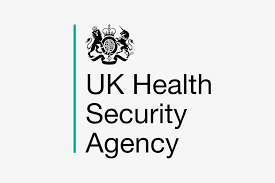
The UK Health Security Agency is reminding parents and carers of the simple steps they can take to ensure their children make the healthiest start to this school term after the Christmas break.
The new year brings with it an opportunity to teach children about the importance of good hygiene and with the recent increase in cases of flu and high levels of norovirus, it’s more important than ever.
The latest surveillance data from UKHSA shows that flu activity continued to increase over the Christmas break, with hospitalisations also increasing. Flu is now circulating at high levels, an increase on the medium levels we saw before the school holidays, which is why it’s especially important to teach good hygiene habits as children return to school.
Figures are expected to rise further as children go back to school and many return to the workplace. However, there are simple steps that families can take to reduce the spread of infections and protect households and classrooms from illness this New Year.
Dr Vanessa MacGregor, Consultant in Communicable Disease Control at UKHSA, East Midlands said: “It’s an important time of year, as children get started on the new school term. There are simple steps you can take to help stop the spread of nasty illness in the next few weeks of winter, including making sure your child is regularly washing their hands, ensuring they are up to date with vaccinations, and knowing when to keep your child off school.”
Stomach bugs spread easily in schools, nurseries and households. If you or your child have diarrhoea and vomiting, washing your hands with soap and warm water and using bleach-based products to clean surfaces will help stop infections from spreading. Don’t prepare food for others if you have diarrhoea or vomiting or for 48 hours after symptoms stop. If you are unwell, you should also avoid visiting people in hospitals and care homes to avoid passing on the infection to those who are more vulnerable. Do not return to school, nursery or work until 48 hours after symptoms have stopped.
Regularly washing your hands with soap and warm water for 20 seconds, or using hand sanitiser when convenient, is one of the most effective ways to stop the spread of germs. Parents are encouraged to lead by example and encourage good hygiene habits such as using a tissue to catch coughs and sneezes, as well as washing hands. Alcohol gels don’t kill all bugs so don’t rely on these.
January marks the start of a new term, with new things to learn and friends to make. Time off school can disrupt learning and also be an inconvenience for parents and carers having to stay off work. This is why it’s important to know when to keep your child at home and when to send them to school. Children can stay in school with symptoms such as a runny nose, sore throat or slight cough if otherwise well and do not have a high temperature but should stay home if they’re displaying symptoms such as having a fever. If your child has diarrhoea and vomiting, they should stay home for at least 48 hours after these symptoms clear up.
If you have symptoms of flu or COVID-19 such as a high temperature, cough and feeling tired and achy, try to limit your contact with others. If you have symptoms and need to leave the house, you are advised to wear a face covering.
Last year, falling vaccination rates among young children resulted in a widespread measles outbreak in England, which is why it’s important to check your children are up-to-date with their routine vaccinations, which protect against diseases such as measles, mumps, rubella, diphtheria and polio. If parents are unsure of their child’s vaccination status, they can check their child’s red book or contact their local GP.
If you’re expecting, it’s also important that you take up all vaccinations offered to you, including the whooping cough and the new RSV vaccine which protects newborn babies against serious illness.

 PM tells councils to prove action on pothole plague to unlock extra cash and reveals £4.8bn for major roads
PM tells councils to prove action on pothole plague to unlock extra cash and reveals £4.8bn for major roads
 Giving Lottery Result for Saturday 29th March 2025
Giving Lottery Result for Saturday 29th March 2025
 3,700-year-old stone circle discovered in Derbyshire forest
3,700-year-old stone circle discovered in Derbyshire forest
 County Council moves forward with its proposals to “Keep Derbyshire Together”
County Council moves forward with its proposals to “Keep Derbyshire Together”




